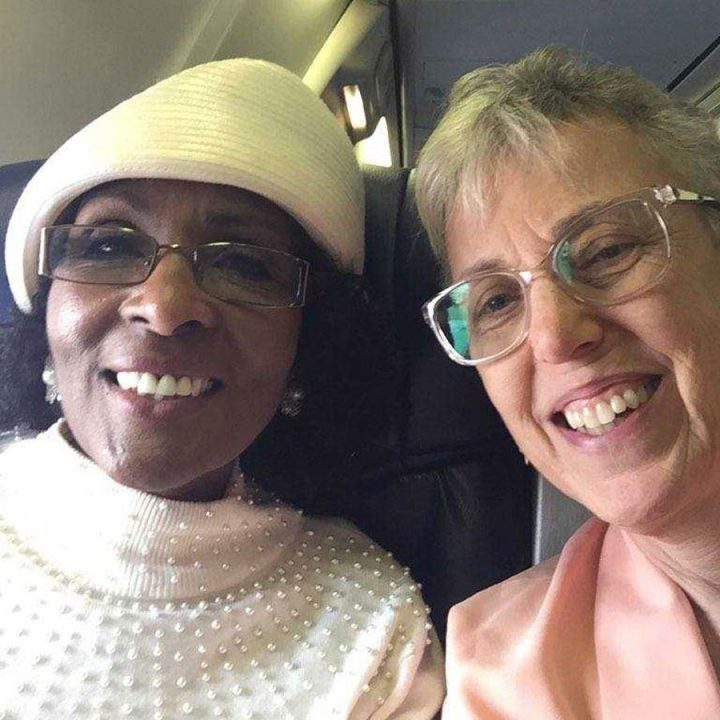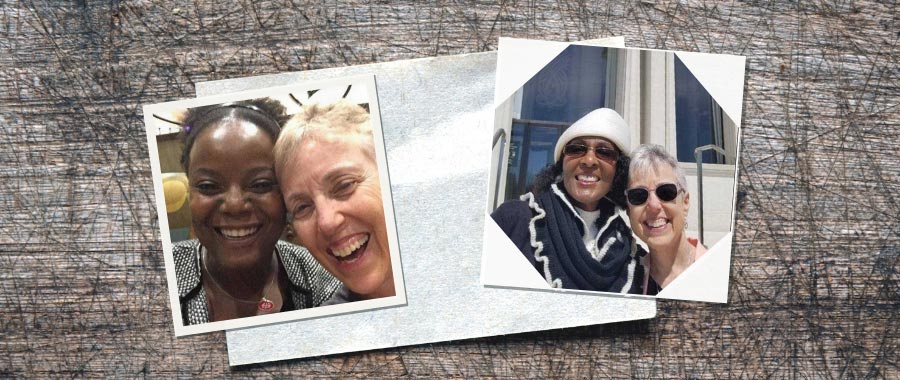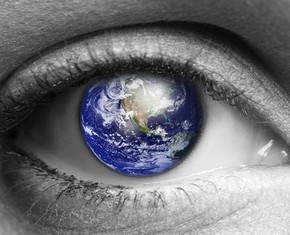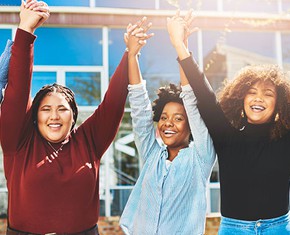The views expressed in our content reflect individual perspectives and do not represent the authoritative views of the Baha'i Faith.
Although we live in a largely unsegregated time – at least legally – most Americans’ private lives don’t reflect it.
When my friend Susan Troxel noticed this, she went on a journey to ensure that her social circle reflected the diversity she believed in.
Sixty-five years ago, ruling in the famed Brown vs. Board of Education case, the United States Supreme Court outlawed segregated public education facilities for black and white students at the state level, which began the slow process of desegregating public spaces in the United States.
But today, 75 percent of white Americans have “entirely white social networks without any minority presence,” according to the Public Religion Research Institute. These stark statistics present our country with a huge problem – because understanding and empathizing with their struggles means closely associating with the oppressed.
How can white Americans ever see black or brown Americans – or people from other nations and cultures – as human and care about our rights if they never see or hear our perspective? How can white people ever stop seeing us as the “other” if we’re never in the same places?
The Baha’i teachings emphasize the necessity of having close, diverse friendships – and the responsibility the privileged majority has to fight for the rights of all minorities. The Universal House of Justice, the global governing body of the Baha’i Faith, wrote:
Shoghi Effendi explained that ‘every organized community enlisted under the banner of Baha’u’llah should feel it to be its first and inescapable obligation to nurture, encourage, and safeguard every minority belonging to any faith, race, class, or nation within it.’ – The Universal House of Justice, 27 December 2017.
In order to nurture, encourage, and safeguard everyone from minority cultures, Baha’is believe, white people can benefit enormously by being intimately involved in the lives of people of color:
O Children of Men! Know ye not why We created you all from the same dust? That no one should exalt himself over the other. Ponder at all times in your hearts how ye were created. Since We have created you all from one same substance it is incumbent on you to be even as one soul, to walk with the same feet, eat with the same mouth and dwell in the same land, that from your inmost being, by your deeds and actions, the signs of oneness and the essence of detachment may be made manifest. – Baha’u’llah, The Hidden Words, p. 20.

Because of this, I am very grateful for the white people in my life who have followed these teachings. Susan Troxel, a close family friend, has really taken this call to heart. She explained that she was always concerned about race unity, and even adopted children of color, but it wasn’t until five years ago that she started to develop close friendships with women of color. She said:
I am really committed to nurturing very close and intimate friendships that cross color lines because I have come to understand that being in meetings and discussing race is one thing, but having very close friendships where we really get a close look at other people’s lives has taught me things that I never would have learned otherwise and brought me so much meaning and so much joy.
In my Baha’i service, I have come to intentionally try to uplift the pupils of the eye [a term from the Baha’i writings that refers to people of African descent] in several ways. One is by supporting a very close friend in her path of service, which involves amazing [community dialogues] both in her home and [in the] public, which focus on race and justice. So, something that I have grown into doing is being very committed to supporting those in any way that I can. Sometimes that means helping with refreshments or bringing paper goods or helping to greet people or helping to clean up, but whatever it is, however I can help, I’m just very committed to that and it’s actually been kind of a revelation to me how much that has meant to her.
Susan’s humility comes through in what she says here, because she does so much more than that. She always makes sure there is vegan food at certain events so my mother and I (who are both vegans) don’t have to worry about not being able to eat anything; she went on a day-long historical bus tour of the underground railroad with us when we learned that we were related to Harriet Tubman; and she often makes herself available at different hours of the day to share in my mother’s excitement or pain when she needs to talk to a friend.
True friendship goes beyond formal service to others: it includes the spontaneous, intimate gatherings, outings, and conversations that create the many memories we come to cherish in our lives. Susan doesn’t just tell her friends that she loves them – she expresses this love through the many different things she does:
Do not be content with showing friendship in words alone, let your heart burn with loving kindness for all who may cross your path. – Abdu’l-Baha, Paris Talks, p. 184.
Susan truly lets her heart burn with loving kindness for all who cross her path. She had the following experience with an African American woman after she moved into her community:
Another experience of a very close relationship with a woman of color occurred when a younger woman who had just moved to my area fell in the metro and busted her knee up badly. She was on crutches for a long time, while trying to adapt to a new job, new apartment, new area, [and] new Baha’i community. It was extremely challenging. Luckily, I had just retired and had the time to accompany her very closely. Our friendship grew deep since the help she needed was both emotional and physical. Most profound for both of us is the memory of my washing her feet when she was unable to reach them; it felt to me like a kind of redemptive act for the history of her people, as well as an intimate act of profound and deep friendship. Our friendship continues to this day as we usually meet for coffee on Saturday mornings and share our lives and our hearts together.
In the next article, we’ll learn more about what inspired Susan to have these close diverse friendships and the impactful experiences that shaped her life.
You May Also Like
Comments

















for all people of the world who must be taught and not just be penalized. By 2045, will the people be 50% better behaved and less prejudice?